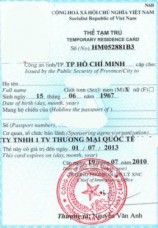Lawyer fees
Lawyer fees in Vietnam
Post date: 07-06-2014
9,628 view(s)
Lawyers charge for their legal services depending on the nature of your needs, the quality of services you seeks, the complexity of your situation, and lawyer’s skill and knowledge varies from lawyer to lawyer.

Lawyer fees in Vietnam
There are generally ten types of lawyer fee and expense arrangements: consultation fees, flat fees, hourly rate, contingency fees, retainer fees, referral fees, percentage fees, statutory fees, lump-sum fees and disbursements.
1. Consultation fees:
It is a lawyer fee, in which the lawyer may charge a fixed or hourly fee for your first meeting where you both determine whether the lawyer can assist you. Our law firm, lawyers give you free consultation for your first meeting. Consultation fees may be charged based on the numbers of questions client asks.
2. Fixed Fees or flat fees
A fixed fee is a lawyer fee used when a lawyer knows ahead of time what the cost will be with reasonable certainty, such as incorporating a business, drafting a straightforward will, real estate transactions or collecting outstanding debts. It is the simplest and most straightforward type of fee, but is usually only used when there are no unknown factors involved in the case that may change the amount of time and effort required. If circumstances change substantially during the resolution of your case, your lawyer will advise you, the client, and renegotiate the flat fee. You pay the amount the lawyer quotes you, regardless of how much time the lawyer spends on the case.
3. Hourly rate or bill rate:
Bill rate is a lawyer fee which is the amount that a lawyer, law firm charges per hour of work. Hourly rates are the most common type of fee, probably because it is hard to predict at the start of a case just how much time it will take. A lawyer keeps detailed records of all the time spent on a case, known as billable hours (which cover items such as drafting letters, reading correspondence, research, meetings with other lawyers, clients and witnesses or telephone calls). Then they multiply the total hours by their hourly rate to get your bill. Thus, for example, if the lawyer”s fee is $100 per hour and the lawyer works 5 hours, the fee will be $500. Some lawyers charge different fees for different types of work (legal research versus a court appearance). Hourly rates vary widely depending on the experience of the lawyer and the nature of your case and location. Cheaper might be better, but a more expensive and experienced lawyer could very well handle your case faster and better. The bill rate for an attorney may be from $100 to $200 per hour.
4. Contingency fees
The lawyer fee is based on a percentage of the amount awarded in the case. If you lose the case, the lawyer does not get a fee, but you will still have to pay expenses, such as medical reports and court filing fees.
The percentage of the contingency fee is usually negotiated between you and your lawyer based on the amount of the claim less your costs, depending on your chance of success, the amount of your claim, and whether your case goes to trial or settles before trial. The percentage is lower if your case settles early, before the lawyer has done much trial preparation. The percentage is higher if your case goes to trial. Your agreement with the lawyer will have different percentages for different outcomes. Ten percent to a one-third of the settlement or judgment is common and can be negotiated fee.
The contingent fee may be split among several firms who have contractual arrangements amongst themselves for referrals or other assistance. Where a plaintiff loses, the attorney may not receive any money for his or her work.
The contingent fee has been described as the ‘poor man’s key to the courthouse’. Whereas, corporations or wealthy individuals can afford to hire attorneys to pursue their legal interests.
5. Retainer fees or up-front fee:
An up-front fee paid to a lawyer is called a retainer. Retainer fees are advanced payment of lawyer fees based on an hourly rate. Clients pay to their lawyer as a deposit at the start of your case. The lawyer keeps this money in a trust account and the cost of services is deducted from that account as services are completed. The lawyer bills you periodically and takes the amount you owe from the retainer. The lawyer may bill you monthly, or at the end of each stage of your case, or at the end of your case. When the retainer falls below a certain level, the lawyer asks you for more money. The client should be aware that the retainer fee is generally refundable if not used by the lawyer.
6. Referral Fee:
Refferal fees are lawyer fees, in which a lawyer who refers you to another lawyer may ask for a portion of the total fee you pay for the case. Just like other fees, the total fee must be reasonable and you must agree to the arrangement.
7. Percentage fees or Value-added fees
Percentage fees are lawyer fees which are not related to the quality of service or the amount of time a lawyer spends on a case but instead represents a percentage of a specific asset or transaction, such as when buying or selling a business, collecting a debt, probating a will or executing an estate. If the value of the asset is very high, the lawyer can obtain a relatively high fee for his services under this fee arrangement.
Value billing refers to the value a client places on the services provided by that lawyer. For example, if a job must be completed very quickly or if a client has very few options, the value of the lawyer’s service may be very high.
8. Statutory Fee:
A statutory fee is a lawyer fee set by law. Some legal work requires the court to set or approve the fee.
9. Lump-sum fees
Sometimes the first eight types of lawyer fees may not work. In that case, you and the lawyer can try to agree on a lump sum that fairly reflects the time spent and all the other factors.
10. Disbursements
There may be other expenses, known as disbursements, such as couriers, photocopying, long-distance phone calls, court filing fees, etc. You will also be responsible for items the lawyer has to pay for on your behalf, such as expert reports or land title charges. Disbursements are not lawyer fees, in some situations, a lawyer will ask you as a client to pay a “retainer” or a fee to retain the lawyer for future services as security for the lawyer that his or her bills will be paid. It also demonstrates a level of commitment to your lawyer. A retainer is essentially a fee for services that have not yet been delivered.
Lawyervn.net
Relate News
- › Vietnamese law firm in setting up enterprise in Vietnam
- › Vietnamese law firm
- › Vietnamese wills and probate lawyers or attorneys
- › Vietnamese Intellectual Property Lawyers
- › Vietnamese Divorce Lawyers
- › Vietnamese adoption lawyer
- › Vietnamese barrister, advocate, counselor
- › Vietnamese solicitor
- › Vietnamese lawyer
- › Best ways to find Vietnamese lawyer














Send your comment